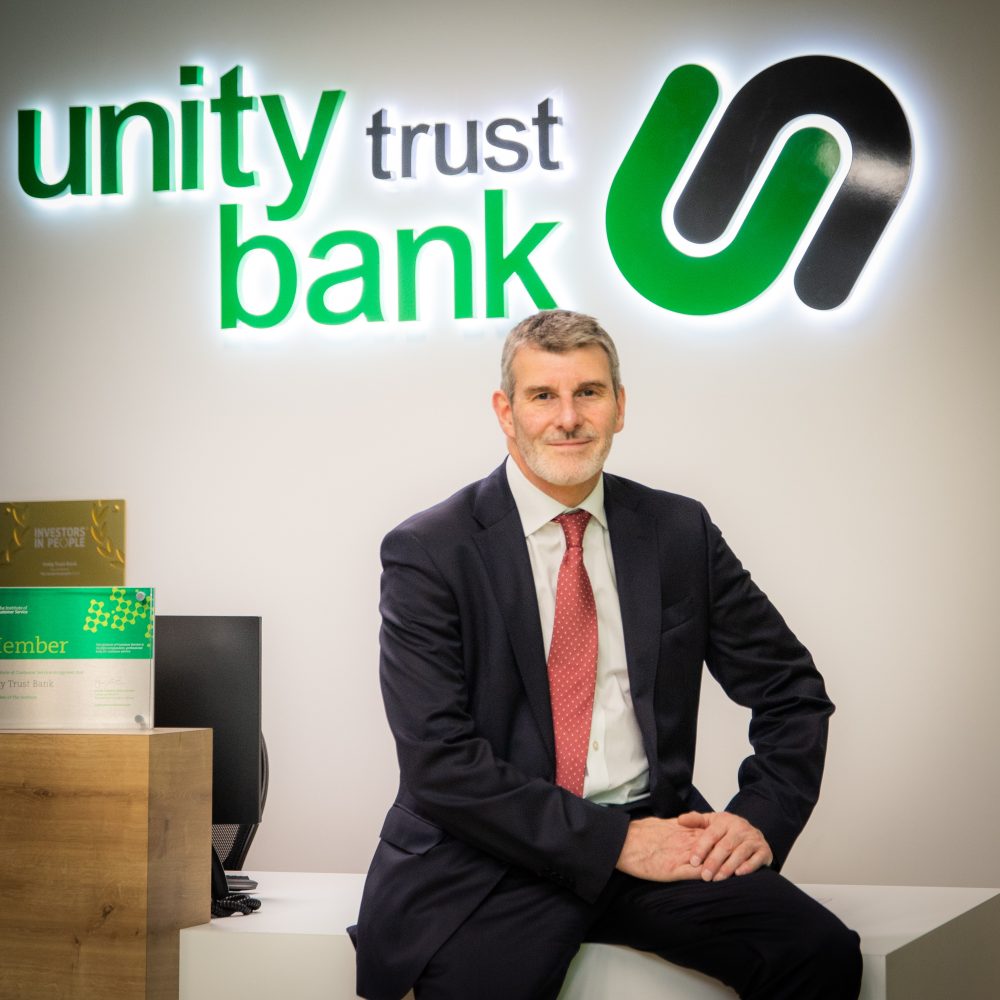
The business case for values-based banking
Latest NewsThe business case for values-based banking
Published: May 6, 2025
This article first appeared in Commercial Broker.
Martin Tighe, Regional Director at Unity Trust Bank, explores how choosing a bank that measures both financial and social returns can be advantageous for business growth, giving brokers the opportunity to help their clients make informed choices about their deposits.
“In today’s market, businesses are recognising that profits and purpose aren’t mutually exclusive. Through values-based banking, organisations can access competitive commercial support, while ensuring their deposits are driving positive change in society.
Demand for ethical finance is increasing too. Today’s customers are more aware of, and invested in, the social and environmental impact of organisations they spend their money with. This is influencing where businesses are choosing to deposit funds.
Brokers can play an important role in helping clients make good choices about their money. By recommending a values-based bank, brokers can give confidence that their deposits are helping to support social good.
This call for greater transparency has been mirrored by more stringent regulation in the sector. Industry bodies such as the Prudential Regulation Authority (PRA) and Financial Conduct Authority (FCA) now require more robust impact reporting – including proper measurement of a lender’s sustainability, green finance, and social impact initiatives.
As values-based banks lend money against specific criteria to deliver positive change, brokers can assure customers that their funds are acting as a force for good.
For many mainstream institutions, a ‘sustainable finance’ approach may only form a small part of their overall commercial strategy.
In contrast, ethical banks are built upon a complete commitment to make a positive difference in society. This is what ultimately drives their financial and lending decisions, with a focus on the delivery of tangible social impact alongside commercial returns.
Values-based banks will often cater to underserved sectors, such as charities, local councils, or community interest companies. These clients may not have a long credit history, meaning they often struggle to secure funding from more traditional, high-street lenders. In recent years, some of these groups have even struggled to access basic banking services.
Values-based banks, on the other hand, provide customers with personalised and tailored services due to the shared values and aim to create positive change. Both brokers and their clients can benefit from the expertise of specialist relationship managers, with an in-depth knowledge of the sector and their needs.
By understanding the proposition of a values-based bank, brokers can best serve their clients who are looking to make an ethical choice and still receive competitive returns on their deposits.
Today, customers want to ensure their money is being used for good, with a bank that shares the same values of social responsibility.
In an evolving climate, these lenders represent a valuable option for brokers, who can further develop their own client base and, in turn, help their customers deliver positive social change.”